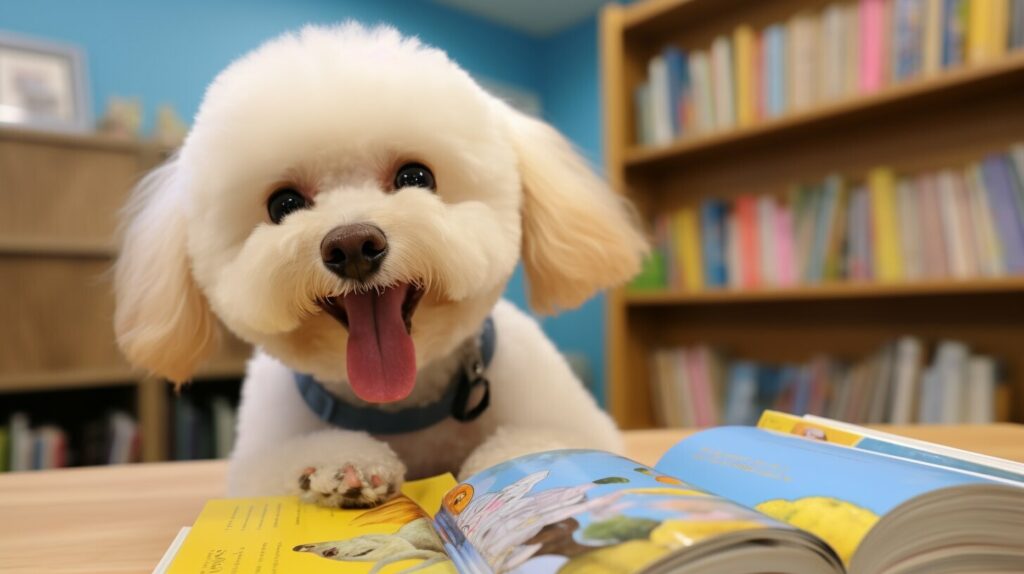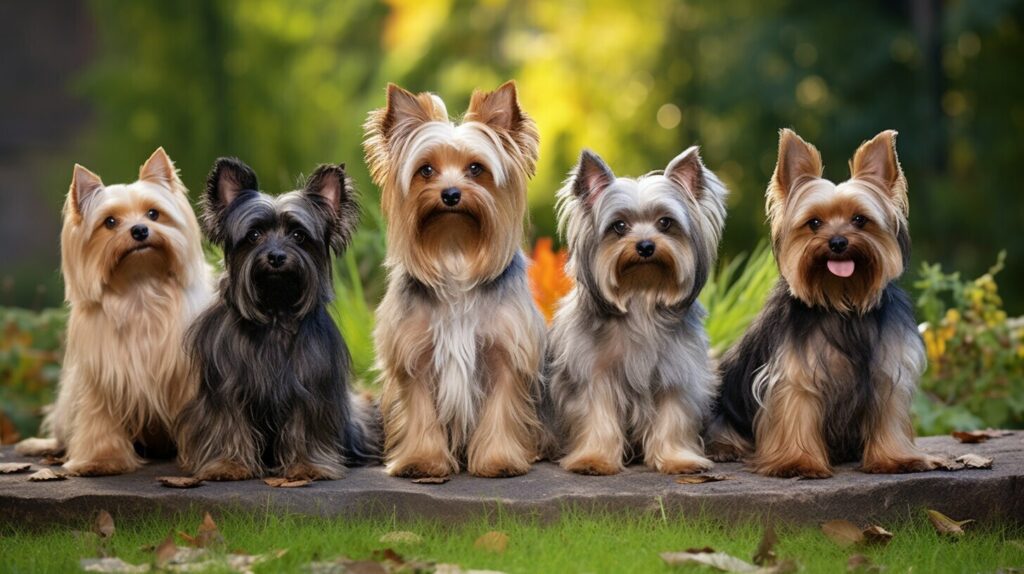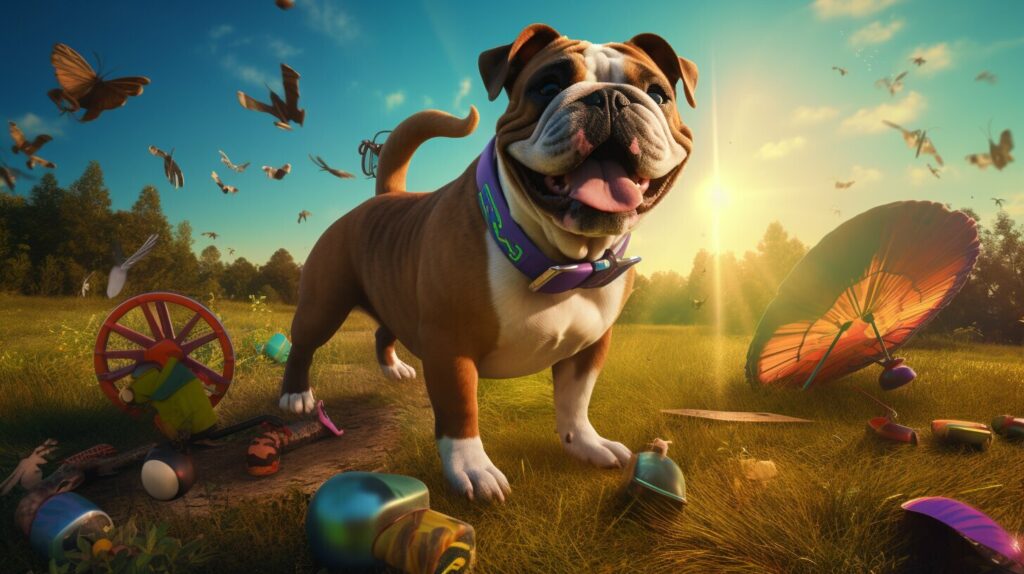Welcome to the world of poodle dogs! If you’re considering bringing one of these intelligent and graceful pets into your home, you’re in for a real treat. Poodle dogs are not only hypoallergenic and highly trainable, they are also loving companions that bring joy to their owners’ lives. In this guide, we’ll explore the many aspects of poodle dog ownership, from grooming to training to maintaining their overall health.
Key Takeaways
- Poodle dogs are hypoallergenic and highly trainable.
- They make loving and joyful companions.
- Proper grooming, care, and training are essential for a happy and healthy poodle dog.
Understanding Poodle Breeds
If you’re considering bringing a poodle into your home, it’s important to understand the different breeds. Poodles come in three sizes: standard, miniature, and toy. While they may look similar, each breed has unique characteristics that make them stand out.
| Breed | Size | Appearance | Characteristics |
|---|---|---|---|
| Standard Poodle | Over 15 inches | Taller, muscular | Intelligent, athletic, highly trainable |
| Miniature Poodle | 10-15 inches | Small, compact | Playful, lively, easy to train |
| Toy Poodle | Under 10 inches | Very small | Affectionate, charming, easy to carry |
Whether you live in a small apartment or a large house with a big backyard, there’s a poodle breed that will fit your lifestyle. Standard poodles are perfect for active families who love to exercise, while miniature and toy poodles thrive in smaller environments.
Understanding Poodle Breeds: A Closer Look
Let’s take a closer look at each poodle breed and their unique characteristics:
- Standard Poodle: These regal dogs are known for their intelligence and athleticism. They love to exercise, play, and learn new tricks, making them excellent companions for active families. Their non-shedding coat requires regular grooming to keep it clean and healthy.
- Miniature Poodle: Don’t be fooled by their small size – miniature poodles are lively and playful. They’re friendly with strangers and other pets and are easy to train. They make great apartment dogs but still need daily exercise and mental stimulation.
- Toy Poodle: Toy poodles are affectionate, charming, and highly adaptable. They’re small enough to take with you wherever you go and love to be the center of attention. They don’t require as much exercise as their larger counterparts, but still need daily walks and playtime.
No matter which poodle breed you choose, you’ll have a loyal and loving companion for years to come.
Grooming Your Poodle
Grooming your poodle is essential in ensuring the health and beauty of their coat. Poodles have hair, not fur, which means they don’t shed as much as other breeds. However, this also means their hair can become easily matted if not properly cared for.
Tip: Start grooming your poodle at a young age to get them used to the process and make it a positive experience.
| Coat Care | Brushing | Professional Grooming |
|---|---|---|
| Poodles require regular baths and hair trims to prevent matting and keep their coat healthy and clean. Use a dog-specific shampoo and conditioner to avoid drying out their skin. | Brush your poodle’s hair at least once a day to avoid matting. Use a detangling spray if needed. Start from the bottom and work your way up to avoid pulling on their hair and causing discomfort. | Professional grooming is recommended every 6 to 8 weeks. A groomer will trim your poodle’s hair to the desired length and style, as well as perform a full-body check for any lumps or skin irritations. |
Tip: Regular grooming also helps you detect any lumps, bumps, or skin irritations early and seek veterinary attention if necessary.
Grooming Your Poodle
“Grooming is not just about maintaining your poodle’s appearance; it’s about keeping them healthy and happy.”
Proper Care for Your Poodle
When it comes to poodle dogs, proper care is essential for keeping your pet healthy and happy. Here are some important aspects of poodle care to keep in mind:
Nutrition
A healthy diet is the foundation of good poodle care. Choose high-quality dog food that is appropriate for your poodle’s size and age. Avoid feeding your pet table scraps or human food, as they can cause digestive problems and weight gain. Make sure your poodle always has access to fresh, clean water.
Exercise
Poodle dogs are energetic and need regular exercise to stay healthy and fit. Aim for at least 30 minutes of physical activity per day, such as walks, runs, or playtime in a safe, enclosed area. Regular exercise also helps prevent behavioral issues and promotes mental stimulation.
Vaccinations and Check-ups
Regular visits to the vet are crucial for maintaining your poodle’s health. Make sure your pet is up-to-date on all necessary vaccinations and schedule annual check-ups to catch any potential health issues early on. Your vet may also recommend preventative care measures, such as flea and tick prevention, to keep your poodle healthy.
Grooming
Poodle dogs have a unique, curly coat that requires regular grooming to stay healthy and beautiful. Brush your poodle’s coat daily to prevent tangles and matting, and take your pet to a professional groomer for regular haircuts and coat maintenance. Regular nail trims and teeth cleanings are also important aspects of poodle care.
By following these essential care requirements, you can ensure that your poodle dog leads a happy and healthy life as your loving companion.
Training Your Poodle
If you’re looking for a highly intelligent and trainable dog, poodles are an excellent choice. These graceful and adaptable dogs are quick learners and eager to please, making them ideal for obedience training and other types of canine competition.
Here are some tips to help you train your poodle:
- Start early: Begin training your poodle as soon as you bring them home. Puppies are sponges for information, and early training sets the foundation for a well-behaved adult dog.
- Positive reinforcement: Use positive reinforcement techniques, such as treats, praise, and playtime, to reward good behavior and encourage your poodle to repeat it.
- Be consistent: Consistency is key when it comes to training your poodle. Use the same commands and techniques every time, and make sure everyone in the household is on the same page.
- Be patient: Some poodles may take longer to learn than others, so be patient and persistent. With time and repetition, your poodle will master new tricks and behaviors.
- Socialization: Socialization is crucial for all dogs, but especially for poodles, who thrive on companionship. Expose your poodle to new people, animals, and environments to help them develop confidence and adaptability.
With their intelligence and eagerness to please, poodle dogs can excel in a variety of training activities, from basic obedience to advanced agility courses. By using positive reinforcement and consistent techniques, you can help your poodle reach their full potential as a well-trained and happy companion.
Adorable Poodle Puppies
Bringing a poodle puppy into your home can be a joyous and rewarding experience! Poodle puppies are known for their playful personalities, intelligence, and hypoallergenic coats, making them an excellent choice for families with children or individuals with allergies.
When looking for a poodle puppy, it’s important to find a reputable breeder who prioritizes the health and well-being of their dogs. Avoid puppy mills and backyard breeders, as these operations often prioritize profit over the welfare of the animals.
Before bringing your new puppy home, make sure they have received appropriate vaccinations and have been cleared of any health issues by a licensed veterinarian. Socialization is also crucial for young puppies, so make sure to introduce them to new people, animals, and environments in a positive and controlled manner.
Training your poodle puppy is another important aspect of responsible ownership. Poodles are highly intelligent and eager to please, making them quick learners. Begin with basic commands such as sit, stay, and come, and gradually progress to more advanced skills. Consistency, patience, and positive reinforcement are key to successful training.
With proper care, love, and attention, your poodle puppy will quickly become a beloved member of your family. Embrace the joy of raising a happy and healthy poodle puppy, and enjoy all the wonderful experiences that come with being a poodle owner!
Maintaining Poodle Health
As a responsible poodle owner, keeping your pet healthy is essential to ensuring a happy and fulfilling life. By providing proper nutrition, exercise, and regular veterinary care, you can prevent and address potential health issues.
Nutrition
The right nutrition is key to keeping your poodle healthy and happy. Choose high-quality, age-appropriate dog food and avoid giving your pet table scraps or human food. Overfeeding can lead to obesity, which can cause health problems like joint issues and heart disease.
Exercise
Poodle dogs are active and playful, so regular exercise is important for their physical and mental health. Take your pet for daily walks, play fetch, and consider agility training. Exercise can help prevent obesity, improve cardiovascular health, and reduce stress.
Veterinary Care
Regular veterinary care is essential to maintaining your poodle’s health. Schedule annual check-ups, and make sure your pet is up to date on vaccinations. Be aware of any changes in your poodle’s behavior or appetite, and seek veterinary care if necessary. Regular grooming, including dental cleaning, is also important to maintain your poodle’s health.
Preventative Care
In addition to regular veterinary care, preventative care is an important aspect of maintaining your poodle’s health. Use flea and tick preventatives, heartworm medication, and keep your pet’s environment clean. Brush your poodle’s teeth regularly to prevent dental disease, and monitor your pet for any signs of illness.
Signs of Potential Health Problems
To maintain your poodle’s health, it’s important to be aware of potential health problems. Watch for signs of allergic reactions, such as itching and scratching, or signs of illness, such as lethargy or vomiting. Contact your veterinarian if you notice any changes in your pet’s behavior or health.
Key Characteristics of Poodle Dogs
Poodle dogs are beloved for their intelligence, athleticism, and playful nature. These graceful and elegant dogs have unique characteristics that make them stand out from other breeds.
One of the most notable characteristics of poodle dogs is their hypoallergenic coat. This means that poodles shed very little, making them an excellent choice for people with allergies. Their curly, dense fur requires regular grooming to prevent mats and tangles, but it also adds to their distinctive look.
Another characteristic that sets poodle dogs apart is their reputation as excellent family pets. Poodles are friendly, sociable dogs that love to be around people. They are also known for getting along well with other pets, making them a great addition to multi-pet households.
Despite their reputation as show dogs, poodles are also highly intelligent and adaptable. They are eager to please and respond well to positive reinforcement training. They excel at obedience and agility competitions, but they also make great therapy dogs and companions for people of all ages.
Finally, poodle dogs are known for their playful and affectionate nature. They love to play and are always up for a game of fetch or a walk outside. They also crave attention and affection from their owners, making them loyal and devoted pets.
Understanding Poodle Temperament
One of the most endearing qualities of poodle dogs is their friendly and adaptable temperament. Poodles are known for their sociability with other pets and people, making them excellent family pets. They are highly intelligent and thrive on mental stimulation and companionship.
It is important to keep in mind that poodles require regular exercise and mental stimulation to stay happy and healthy. Daily walks, interactive toys, and training sessions can provide the mental and physical stimulation that poodles need.
When it comes to training and socialization, poodle dogs are eager to please their owners and learn quickly. Positive reinforcement techniques, such as rewards and praise, are highly effective in training poodles. Socialization is also a crucial aspect of training, as it helps poodles become well-adjusted and confident in different environments.
It is worth noting that poodles can experience separation anxiety if left alone for long periods of time. This can lead to destructive behavior and other negative consequences. To prevent separation anxiety, it is important to provide your poodle with plenty of attention and mental stimulation. A trusted pet sitter or doggy daycare can also provide companionship and stimulation while you are away.
Overall, poodle temperament is characterized by friendliness, adaptability, intelligence, and sociability. Keeping your poodle mentally and physically stimulated, providing positive reinforcement training, and socializing your pet are all essential in ensuring a happy and healthy relationship with your poodle dog.
Finding Reputable Poodle Breeders
If you’ve decided that a poodle dog is the right pet for you, the next step is to find a reputable breeder. A responsible breeder prioritizes the health and well-being of their dogs, and is committed to producing healthy and well-socialized puppies.
Here are some key factors to consider when looking for a reputable poodle breeder:
- Research: Start your search by researching breeders in your area, either through online directories or by asking for recommendations from other poodle owners. Make sure to read reviews and check the breeder’s reputation.
- Visit: Schedule a visit to the breeder’s facility to meet the dogs and observe their living conditions. Responsible breeders will welcome visitors and show you around their facility.
- Health testing: Ensure the breeder conducts health testing on their breeding dogs to prevent the passing on of genetic diseases to their offspring. Ask for documentation of the testing results.
- Contracts: A reputable breeder will offer a written contract that outlines their responsibilities and yours as a buyer. Make sure to carefully read and understand the contract before signing it.
- Communication: A responsible breeder will be open and honest about their breeding practices and will be available to answer any questions you may have.
- Avoid puppy mills: Stay away from breeders who prioritize profit over the health and well-being of their dogs. Puppy mills often keep their dogs in cramped and unsanitary conditions and do not conduct proper health testing.
Remember that adopting a poodle puppy is a long-term commitment, and choosing a reputable breeder is a crucial first step in ensuring a happy and healthy life for your new furry friend.
Embrace the Joy of Poodle Dogs
If you’re considering adding a pet to your family, poodle dogs are an excellent choice. Throughout this article, you’ve learned about the different breeds of poodles, their grooming and care requirements, training techniques, and the importance of responsible ownership.
Poodle dogs are intelligent, playful, and loyal. They make great companions for families and individuals alike. With their hypoallergenic coat, they’re also an excellent option for those with allergies.
By adopting a poodle dog, you’re not just adding a pet to your home, you’re adding a lifetime friend. You’ll share countless moments of joy and companionship together, creating cherished memories that will last a lifetime.
Remember, responsible ownership is key to ensuring the health and happiness of your poodle pet. Regular vet check-ups, proper nutrition and exercise, and a loving environment are all essential components of providing the best possible care for your furry friend.
In conclusion, if you’re looking for a loving, intelligent, and playful addition to your family, consider adopting a poodle dog. You won’t regret it!
FAQ
Q: What are the different sizes of poodle breeds?
A: Poodle breeds come in three sizes – standard, miniature, and toy. Standard poodles are the largest, miniature poodles are medium-sized, and toy poodles are the smallest.
Q: How often should I groom my poodle?
A: Poodles require regular grooming to maintain their coats. Depending on the length of their hair, they should be groomed every 4-6 weeks. Daily brushing is also recommended to prevent matting.
Q: What kind of training is recommended for poodle dogs?
A: Poodle dogs are highly intelligent and eager to please, making them excellent candidates for training. Basic obedience training and socialization are important for poodles to develop into well-behaved pets.
Q: Do poodle dogs have any common health issues?
A: Poodle dogs are generally healthy, but they may be prone to certain health issues such as hip dysplasia, progressive retinal atrophy, and skin allergies. Regular vet check-ups and preventative care are essential for maintaining their health.
Q: How can I find a reputable poodle breeder?
A: When looking for a poodle breeder, it’s important to do thorough research and choose one who prioritizes the health and well-being of their dogs. Avoid puppy mills and consider adoption from a rescue organization or shelter as another option.



